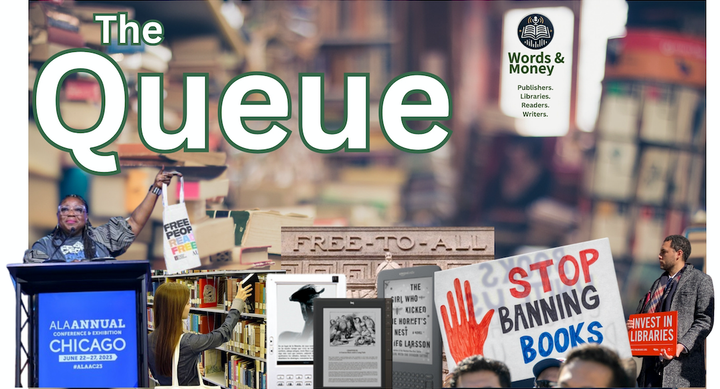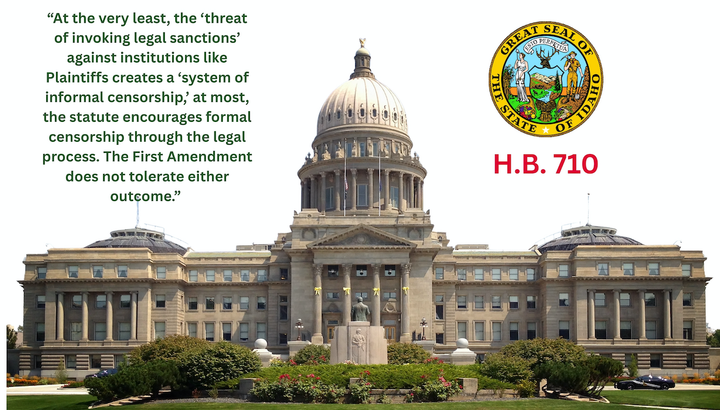States Oppose Trump Administration's Bid to Stay IMLS Injunction
Citing the potential for further harm, attorneys for 21 plaintiff states are urging judge John G. McConnell not to stay his May 13 injunction pending an appeal by the Trump administration.

In a May 27 filing, attorneys for 21 states suing to stop the Trump Administration from destroying the Institute for Museum and Library Services urged a federal judge not to suspend a May 13 preliminary injunction that ordered IMLS employees back to work and the fulfillment of some previously awarded grants. The move for a stay comes as lawyers for the Trump administration are appealing Judge John JG.. McConnell’s order to the U.S. Court of Appeals for the First Circuit, which, so far, has denied the administration an administrative stay.
In their May 19 motion for a stay, DOJ lawyers argued that judge John J. McConnell’s sweeping injunction—which, among its provisions, requires the administration to “reverse” any actions taken to implement Trump’s March 14 executive order and blocks the administration from further efforts to dismantle the IMLS and several other agencies—is overly burdensome because it requires the administration to “reinstate personnel against their judgment, expend non-statutorily required resources, and restart non-statutorily required programs that are directly contrary to the Agency Defendants’ preferred policies.”
But in their opposition filing, state attorneys point to the court’s finding that the states are likely to prevail in the case and note the voluminous evidence of irreparable harm presented to the court—harm that would continue and likely accelerate, the states argue, if the preliminary injunction was stayed.
“Defendants’ six-page stay motion fails to demonstrate any of the factors warranting a stay pending appeal under binding precedent,” the states argue. “Among other things, defendants complain about the fiscal and management challenges of reinstating employees that they previously tried to fire. But defendants are not allowed to violate the law and then complain that the cost of undoing those violations constitutes irreparable harm.”
In rejecting the DOJ’s argument that, at a minimum, any injunction be narrowly limited to the agency’s “mandatory statutory functions,” attorneys for the plaintiff states point to the lack of evidence that agency officials undertook any analysis at all to determine which functions are statutorily required, and note the court's finding that the administration’s actions in implementing Trump’s March 14 executive order are likely illegal.
“On the whole, defendants’ objections to the scope of the preliminary injunction merely repackage their arguments against imposing any preliminary injunction,” the states argue. But “the defendants’ repeated invocation of the administration’s ‘priorities’ and ‘decision-making’ discretion ignores the Court’s fundamental finding that defendants’ actions contravened multiple statutory and constitutional provisions, including the agencies’ obligations to expend funds appropriated by Congress.”
The filing comes after DOJ officials last week delivered a status report to the judge detailing its efforts to comply with the preliminary injunction, while also raising a litany of complaints about the sweeping nature of the injunction. IMLS leaders said it was "diligently working toward reinstating 755 grants in the Plaintiff States" and "eight terminated contracts across six contractors in Plaintiff States."
The DOJ is now due to file a reply to the state’s opposition by May 30.
Notably, in his May 6 opinion finding for the states, McConnell expressly denied the administration’s request for an initial seven-day stay while the DOJ lodged its appeal, citing the potential for further irreparable harm.
However, potentially complicating matters, the U.S. Court of Appeals in Washington D.C. has issued a stay in a similar case, Widakuswara v. Lake. Citing that decision, Trump Administration lawyers have filed a motion to delay an injunction in a parallel case to restore IMLS filed by the American Library Association, with DOJ lawyers insisting that the "dispositive analysis" in the appeals court decision should apply "in equal force" in the ALA case.
While not bound by the appeals court action in Washington D.C., it is unclear how or if McConnell will factor that decision into his decision to grant or deny a stay.


